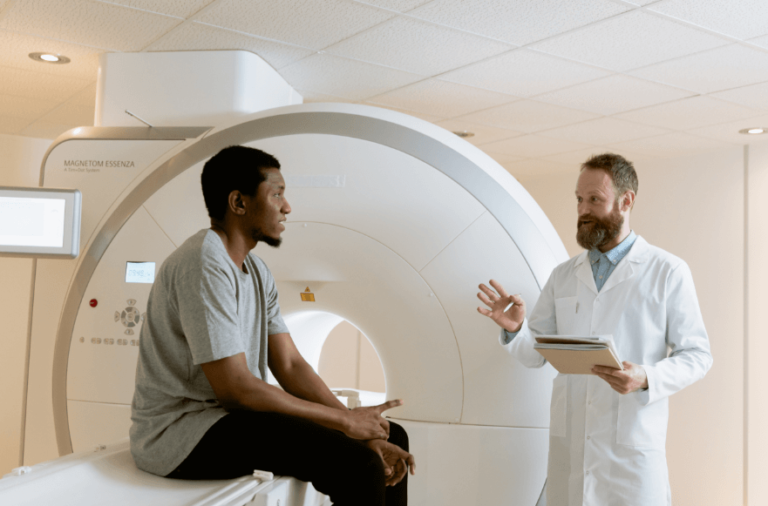Why Healthcare Providers Choose HIPAA Compliant Transcriptions
With the digital healthcare landscape of today, patient confidentiality and proper record-keeping are more vital than ever before. Medical professionals are relying more and more on HIPAA-compliant transcription services to maintain accuracy and security. So why are they so imperative? In this article, we will delve into the main reasons why medical practitioners utilize HIPAA compliant transcriptions, how these services make it possible to be more efficient, and some real-world examples of how they enable improved patient care.
What are HIPAA Compliant Transcriptions?
HIPAA is a contraction of the Health Insurance Portability and Accountability Act, which was an America-based act created to protect the patient’s private information. HIPAA compliant transcription ensures doctor-patient remarks, diagnostic tests, and patient history are transcribed securely within HIPAA-compliant environments. Transcriptions that medical providers use to record the treatment, care, and communications for patients are subject to meeting severe security and privacy requirements not to breach the data.
For all medical professionals, access to services of radiology transcription companies providing HIPAA-compliant transcriptions is essential. Radiologists, for instance, depend on precise, timely reports that are secure from any illegal access. In the absence of HIPAA-compliant services, such reports are exposed to legal and privacy threats that can interfere with the practice and destroy patient trust.
See also: How Drones Are Revolutionizing Various Industries
Why Do Healthcare Providers Use HIPAA Compliant Transcriptions?
Security and Privacy Assurance
The main motive health care providers adopt HIPAA-compliant transcriptions is for protecting patient information. HIPAA dictates health care organizations to adopt rigorous security measures to keep sensitive patient information out of unauthorized hands. For HIPAA-compliance, transcription firms have to abide by the very same regulations that consist of encryption of files, use of secure communications, and limiting access to authorized individuals only.
Real-Life Situation: A big hospital in California collaborated with a HIPAA-certified transcription company to manage its radiology reports. The transcription company delivered confidential, encrypted electronic files, avoiding data loss and adherence to state and federal regulations. Consequently, the hospital escaped expensive fines and improved its image for keeping patients’ information private.
Accuracy and Reliability
Medical transcription needs to be 100% correct, particularly for specialized reports like radiology. A single transcription error may result in a delayed diagnosis, legal action, or even misdiagnosis. High accuracy levels are attained by HIPAA-compliant medical transcribing services because they employ highly skilled personnel who have received background training in medical language. Additionally, to reduce errors, these services combine manual proofreading with sophisticated tools like speech recognition software.
Case Study: The radiology section of a Texas medical practice experienced delayed diagnoses due to frequent transcribing service problems. The firm noticed a significant improvement in turnaround time and accuracy after implementing a HIPAA-compliant transcription provider. The transition reduced missed diagnoses and overall improved patient satisfaction.
Streamlined Workflow and Efficiency
Medical transcription services are always challenging healthcare professionals to be more efficient without lowering the higher quality of patient care. HIPAA-compliant medical transcription services streamline workflow by providing fast and accurate transcriptions of medical charts. This enables healthcare providers to deal with more patients and less paperwork. Medical transcription services typically give quick turnaround and access to transcriptions from any computer system, making communication and decision-making simpler.
Real-Life Situation: Manual transcription procedures were making it impossible for an established, busy family practice in Florida to stay up to date with patient records. They improved the quality of patient interaction, decreased administrative burden, and obtained fast, accurate notes after implementing a transcription system that complied with HIPAA.
Reduced Risk of Legal and Financial Consequences
Medical professionals who are not HIPAA compliant risk severe legal and monetary penalties. These penalties range from fines or loss of accreditation, which requires that all patient records are processed based on HIPAA regulations. Outsourcing transcription services to HIPAA-certified entities helps medical professionals escape such risks and protect themselves against lawsuits or prosecution by the government.
Case Study: One of the New York radiology groups that is at the vanguard of radiology practices was fined for a data breach that resulted from poorly stored patient transcriptions. The practice subsequently shifted to a HIPAA-compliant transcription company so that they would be in accordance with HIPAA standards as well as provide them with a sense of security knowing that all future transcriptions would be secure.
Increased Coordination Amongst Healthcare Teams
Using HIPAA-compliant transcriptions enables medical practitioners to exchange life-or-death patient details more effectively with other medical practitioners. This stimulates cooperation among medical experts, nurses, and office staff, culminating in good patient care. Transcription allows for guaranteed words spoken by any patient, the results of medical tests, as well as any treatment processes.
Real-World Example: Inconsistent patient data and departmental communications plagued a multi-facility healthcare network in Ohio. More uniformity and accessibility of patient records across sites led to more collaboration and more unified care plans when a HIPAA-compliant transcription system was put in place.
Cost-Effective and Scalable
It is less expensive for most healthcare practices to farm out transcription work than it would be to keep it in-house. HIPAA-compliant transcription firms offer tiered rates and adaptable services that make it easier for small and large practices to fit their transcription needs into the mix. No matter if an individual medical provider needs one-off transcription work or volume transcription, these firms are able to shape their work into the scope and budget.
Case Study: A smaller Chicago dental clinic needed a cost-effective solution to provide their transcription requirement. They discovered outsourcing a HIPAA-compliant transcription service provided administrative cost savings without sacrificing high data integrity levels. This was particularly beneficial when it was peak times and the clinic experienced heavy patient visitation levels.
Choosing an Appropriate HIPAA Compliant Transcription Service
In selecting a transcription company, medical professionals have to ensure that the firm is totally HIPAA-compliant and is experienced in the type of transcription that is needed. An example would be radiology transcription companies, which should be familiar with the technical jargon and reporting processes that are employed in creating radiology reports.
Some guidelines on choosing the right transcription service
- Pursue Certification: Ensure that the firm possesses an exemplary record of compliance with HIPAA, such as certification or records of security compliance.
- Judgmental Experience: Choose an entity that deals with experience in your specific specialty area of medicine, e.g., orthopedics, radiology, or cardiology, such that transcriptionists have acquaintance with terms and practices.
- Verification of Turnaround Times: Choose a vendor with rapid, reliable turnaround times, especially in urgent medical reporting.
- Consider Integration: Ensure that the transcription service is capable of integrating well with your current Electronic Health Record (EHR) system to have easy access and management of patient records.
Conclusion
Choosing the implementation of HIPAA-compliant transcription services is not a security issue, it is an issue of keeping the overall efficiency of healthcare procedures. Ranging from protecting patient confidentiality to increasing the authenticity of medical reports, HIPAA-compliant transcriptions confer invaluable benefits that provide improved patient care and protect medical professionals from financial and legal consequences. By the right transcription business partner, healthcare practices are allowed to function more efficiently, reduce administrative inefficiency, and in the end, focus on what they do best: patients’ health and well-being.
By availing HIPAA-compliant transcription companies, medical staff can be certain that they are both in regulatory compliance and out of risk while improving the quality of care to patients in general.


